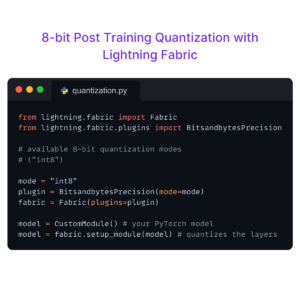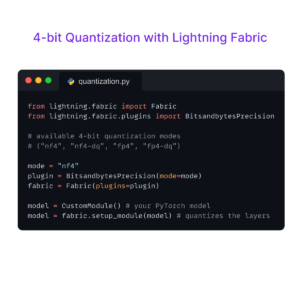Researchers are raising a flag about the privacy risks of the latest diffusion models and the AI detection model created by Princeton student is now GA. OpenAI might be putting a cap on the number of messages you’re able to send ChatGPT per day and we’re helping you triple your model’s inference speed. Let’s dive in!
Research Highlights:
- Diffusion models are significantly less private than earlier generative models like GANs, according to a paper gaining widespread interest from DeepMind, Google and others. They conclude that new developments in privacy-preserving training may be needed to mitigate these vulnerabilities. Diffusion models, according to the research, memorize specific images from their training data and emit them at generation time. The paper concludes that new developments in privacy-preserving training may be necessary to mitigate these vulnerabilities.
- SingSong is a system developed by Google researchers that creates instrumental music to go with input vocals. To produce aligned pairs of vocal and instrumental sources, they worked with a large corpus of music audio and a separation algorithm. Their paper states that their listeners “expressed a significant preference for instrumentals generated by SingSong compared o those from a strong retrieval baseline.” The intention was to provide musicians and non-musicians alike with an intuitive new way to create music featuring their own voice.
- MAV3D (Make-A-Video3D), a technique for creating 3D dynamic scenes from text descriptions, was presented by researchers from Meta. Their method makes use of a Text-to-Video (T2V) diffusion-based model to query a 4D dynamic Neural Radiance Field (NeRF), which is optimized for scene appearance, density, and motion consistency. The authors claim that MAV3D is the first to generate 3D dynamic scenes given a text description. Generated samples can be viewed at make-a-video3d.github.io.
ML Engineering Highlights
- GPTZeroX, the AI detection model built by a Princeton student Edward Tian is now publicly available. After a month of iterations, the model now claims to handle mixed AI and human text and to highlight the text that is most likely to be produced by AI – a feature highly requested by educators.
- OpenAI released an update for ChatGPT focused around improved factuality and mathematical capabilities. Updates include the ability to view past conversations and an experiment of daily message capping for select groups.
- In an effort to better understand and combat climate change, NASA and IBM announced a partnership that will result in the creation of new AI foundation models to assist with geospatial satellite data analysis. Training a foundation model on NASA’s Harmonized Landsat Sentinel-2 (HLS) dataset, which contains petabytes of data gathered from space about changes in land use on Earth, is one of the partnership’s initial objectives.
Tutorial of the Week
Evaluating machine learning models is a crucial way to make sure that the cost of deploying those models in a given research project or business endeavor doesn’t outweigh the benefits that they provide. Here are some ways we suggest you evaluate machine learning models.
Upcoming Events
- Join Lightning’s Sebastian Raschka, Neil Bhatt and Thomas Chaton as they walk through the successful (and unsuccessful) experiments we ran to optimize our Stable Diffusion model, ultimately increasing inference speed by 3x. Register now!
- We’re excited to kick off our FIRST in-person Office Hours where we’ll be regularly meeting with our community, pouring happy hour drinks, and sharing product demos! Reserve your spot now to join us on Feb 13th in NYC.
Community Spotlight
Want your work featured? Contact us on Discord or email us at [email protected]
- This repo contains the source code and implementation of the paper “Interaction Classification With Key Actor Detection in Multi-Person Sports Videos” authored by researchers at McGill University and the Birla Institute of Technology and Science. This paper, which leverages Lightning to perform action recognition and key player identification, was accepted at CVPR’22.
- JellyML is an open-source tool for effortlessly embedding a snapshot of your code into a checkpoint of a PyTorch and PyTorch Lightning model. Using it, you can go back to any of your checkpoints and reproduce your code exactly as it was when you trained it.
Lightning AI Highlights
- Have you tried using Lightning in your business or research project and run into trouble, or wish that there was a tool out there that didn’t exist? We want to know! Shoot us an email at [email protected] so we can start building together. 🙂
- Lightning offers several ways for you to deploy your own Stable Diffusion endpoint, including a number of optimizations to improve your server’s throughput and concurrency.
Don’t Miss the Submission Deadline
- KDD 2023: Conference on knowledge discovery and data mining. (Long Beach, California). Submission deadline: Fri Feb 03 2023 03:59:59 GMT-0800
- ICIP 2023: International conference on image processing. (Kuala Lumpur, Malaysia). Submission deadline: Wed Feb 15 2023 23:59:59 GMT-0800
- UAI 2023: International conferences on research related to knowledge representation, learning, and reasoning in the presence of uncertainty. (Pittsburgh, USA). Submission deadline: Sat Feb 18 2023 03:59:59 GMT-0800
- IROS 2023 : International Conference on Intelligent Robots and Systems. (Detroit, Michigan). Submission deadline: March 1, 2023
- InterSpeech 2023: International conference on the science and technology of spoken language processing. (Dublin, Ireland). Submission deadline: Thu Mar 02 2023 03:59:59 GMT-0800
- CoLLAs 2023: 2nd conference on lifelong learning agents. (Montreal, Canada). Submission Deadline: Tue Mar 07 2023 03:59:59 GMT-0800
- ICCV 2023: International Conference on Computer Vision. (Paris, France). 1. Submission deadline: March 8, 2023 23:59 GMT

